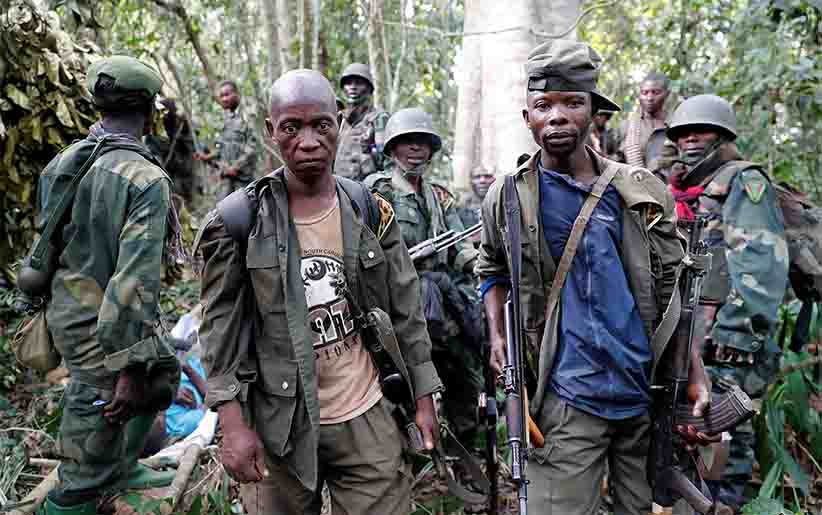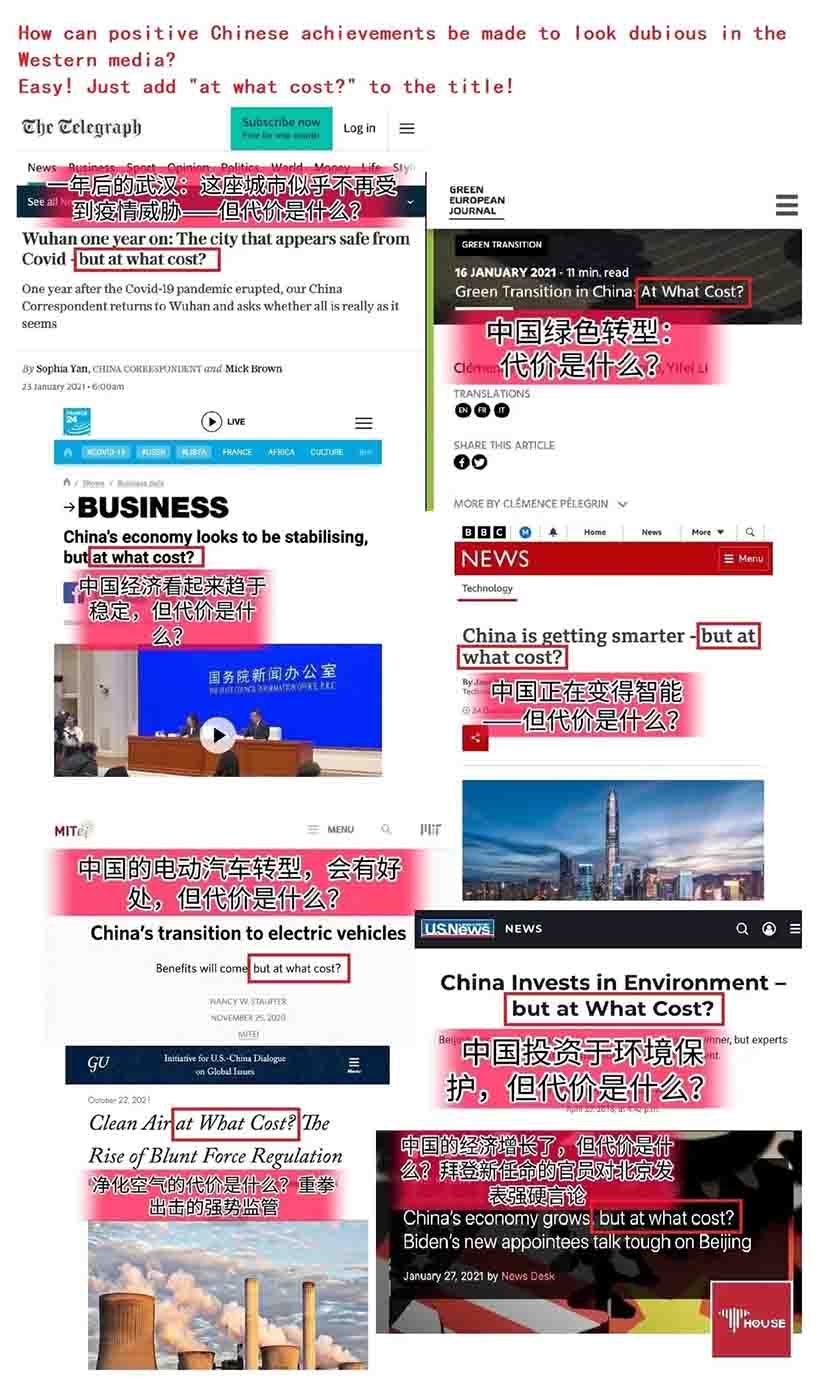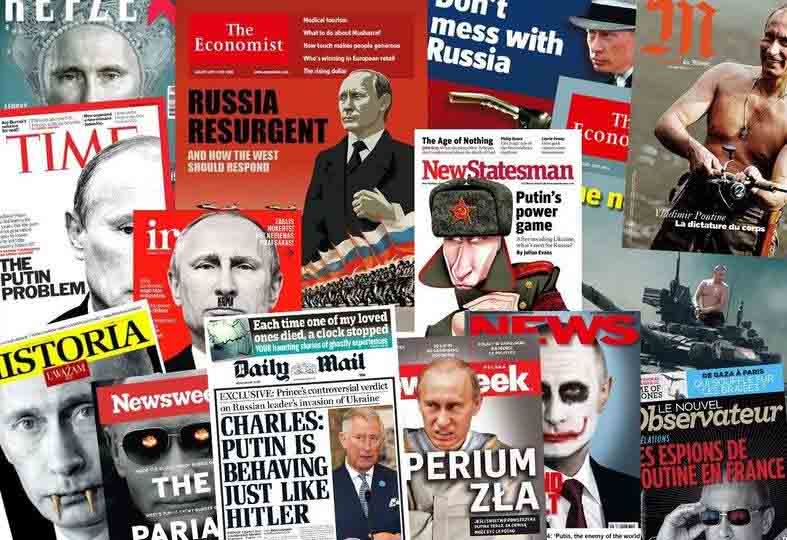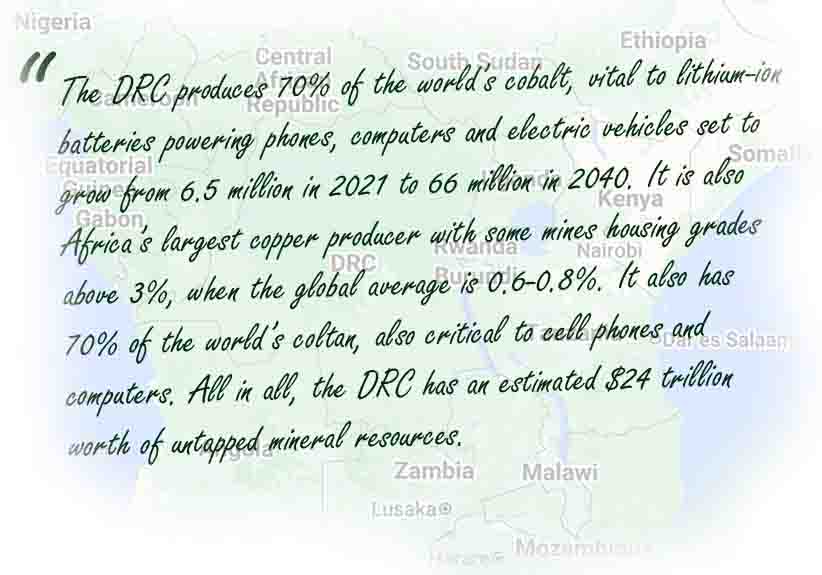
Congolese soldiers in the forest, 2018, as the civil war spill-over from the Rwanda nightmare continues to haunt the DRC
I’ve had liberals, believing themselves well informed by Economist, WSJ. Business Insider et al, patiently explain to me that Western trade with “the developing world” is conducted in a spirit of mutual co-operation beneficial to all parties. (Let’s set aside the question of why centuries of Western rule, hitherto direct but in recent decades operating under the fiction of post-colonial “self determination”, have left that world still “developing”.)
By contrast, they assure me, when a Shanghai Cooperation Organisation or Asian Infrastructure Investment Bank development loan is made to a state in the global south, the aim is to ensnare it in debt so as to seize its collateralised assets the moment it defaults.
Which even if true (and as we’ll see, it isn’t) would be a textbook case of pot, kettle and black.
Let me digress for a moment. In an April post, Ukraine in La-La Land, I spoke of the USA having “the most extensive, the most sophisticated and most multi-dimensional propaganda system in history”.
The crimes of the USA have been systematic, constant, vicious, remorseless, but few speak of them. You have to hand it to America. It has exercised a clinical manipulation of power worldwide while masquerading as a force for universal good. It’s a brilliant, even witty, highly successful act of hypnosis.
Harold Pinter, Nobel Acceptance Speech 2005
My posts on propaganda – e.g. Britain decides! and Monolothic control at the Guardian? – focus in the main on the contribution made by news media whose willingness to speak truth to power on secondary but not always trivial matters obscures the reality – easily verifiable with only a little more effort than the average corporate news consumer is prepared to put in – of their energetic loyalty on matters non-negotiable to said power.
The smart way to keep people passive and obedient is to strictly limit the spectrum of acceptable opinion, but allow very lively debate within that spectrum – even encourage the more critical and dissident views. That gives people the sense there’s free thinking going on, while all the time the presuppositions of the system are being reinforced by the limits put on the range of the debate.
Noam Chomsky 1
By “matters non-negotiable to power” I refer to such as ‘our’ endless wars, sold as humanitarian or to further global peace, and to a heart-warming if newfound concern for fair trade with the global south – just when the continuing ability of the West’s rentier elites to exploit it is called into question by China rising.
It’s not that news media work alone. Far from it. They tap deeper wells of that misunderstood phenomenon, ideology. Of which much has been written, and not all of it by postmodernists incapable of producing a coherent sentence decodable beyond their tiny echo chamber.
In sum the manufacture of Western opinion, which on matters most vital to power comes close to caricature …

… draws not only on news media whose business models make them dependent, most of them directly, 2 on the sale of audiences to other businesses. It draws too on education systems, arts and entertainment, shared cultural codes and unexamined assumptions of Western superiority. Through these filters – in a word, ideology – we make sense of those questions on which news media speak with one voice.

It’s unfortunate the term, ‘ideology’, is on the one hand crudely taken to be a hat we choose – his communist ideology; her tory ideology – on the other a playground wherein the producers of occult gibberish show their playmates how frightfully clever they are. Unfortunate because, properly used, the concept has real explanatory power.
Digression over. Back to the global south; specifically, to Africa.

On Boxing Day, on economist Yves Smith’s Naked Capitalism blog, Conor Gallagher wrote a 2700 worder, US-China Struggle for DR Congo Resources Intensifies. I do recommend a full read for the ringside seat it offers as the Empire and China find themselves increasingly and dangerously at odds, not only in the strategic choke points of South and Central Asia but also – his main theme – a continent strangely impoverished even as it hosts a super-abundance of the mineral wealth now at the epicentre of a new scramble for Africa.
By equally deplorable parties? I say not but you’ll be the judge of that, though for that judgment to have any basis in reality you’ll need to cast your net wider than Economist and Guardian.
Before getting into the specifics of the latter-day Klondike Rush driven by the DRC’s estimated $24 trillions of mineral resources, Conor Gallagher sets the scene:
The West has long criticized China for its loans to African nations, which it claims are designed to seize African assets offered as collateral. (African countries currently owe three times more debt to Western institutions compared to China.)
Deborah Bräutigam, the Director of the China Africa Research Initiative at the Paul H. Nitze School of Advanced International Studies, has written that this is “a lie, and a powerful one.” She wrote, “our research shows that Chinese banks are willing to restructure the terms of existing loans and have never actually seized an asset from any country.”
(Professor Bräutigam, and her team’s laudable empirical work, also featured in my November 2021 post, Sri Lanka and the ‘debt trap’ slur. As its title suggests, that post too is about the reality-inverting lies put out by ‘quality’ media and widely believed for that reason.)
Mr Gallagher continues:
Even researchers at Chatham House admit that’s not the case, explaining that the lending has instead created a debt trap for China. That is becoming more evident as nations are unable to repay, largely due to the economic fallout from the pandemic and the US proxy war against Russia in Ukraine.
See in this regard a 2015 observation by Michael Hudson, quoted in my 2016 post, Perilous Days:
Imagine the following scenario five years from now. China will have spent half a decade building high-speed railroads, ports, power systems and other construction for Asian and African countries, enabling them to grow and export more. These exports will be coming online to repay the infrastructure loans. Also, suppose that Russia has been supplying the oil and gas energy for these projects on credit.
To avert this prospect, suppose an American diplomat makes the following proposal to the leaders of countries in debt to China, Russia and the AIIB: 3 “Now that you’ve got your increased production in place, why repay? We’ll make you rich if you stiff our adversaries and turn back to the West. We and our European allies will support your assigning your nations’ public infrastructure to yourselves and your supporters at insider prices, and then give these assets market value by selling shares in New York and London. Then, you can keep the money and spend it in the West.”
How can China or Russia collect in such a situation? They can sue. But what court in the West will accept their jurisdiction?
Mr Gallagher again:
While China’s initial instinct has been to try and tackle debt repayment issues at a bilateral level, typically by extending maturities rather than accepting write-downs on loans, it’s increasingly getting involved in multilateral talks that include US-backed institutions like the IMF. China (and the borrowing country) are often getting the short end of the stick.
What’s making the world so dangerous now is China’s growing impatience at getting the short end of the stick, and the US Empire’s hell for leather race to shorten it further.
* * *
- For why this and other of Chomsky’s observations on the media neither assume nor rule out conspiracy, see Britain decides! and Monolothic control at the Guardian?
- Since public sector broadcasters depend on government funding, or licence fees set by government, they rely on the good will of politicians who themselves fear and/or are in bed with media oligarchs who in turn answer to the market forces diktat of advertising dependency. This, and the fact of senior BBC executives being appointed by The Crown on ministerial advice, sheds light on why, on matters most vital to power, the BBC is even more reliably obedient than ad-dependent media. Worth noting here is the way Western politicians and media alike have spun a definition of independent media as free of state control. For reasons beyond the remit of this post, that is not entirely true but the bigger whopper consists of diverting us from the truth of ‘independent’ media being dependent, mainly through the need to attract advertisers, on market forces and hence power.
- Like the SCO (Shanghai Cooperation Organisation), the AIIB (Asian Infrastructure Investment Bank) is a major conduit for the financing of Xi’s Belt & Road Initiative.

The more things change the more things stay the same:
The law locks up the man or woman
Who steals the goose off the common
But leaves the greater villain loose
Who steals the common from the goose.
The law demands that we atone
When we take things we do not own
But leaves the lords and ladies fine
Who takes things that are yours and mine.
The poor and wretched don’t escape
If they conspire the law to break;
This must be so but they endure
Those who conspire to make the law.
The law locks up the man or woman
Who steals the goose from off the common
And geese will still a common lack
Till they go and steal it back.
– 17th Century folk poem